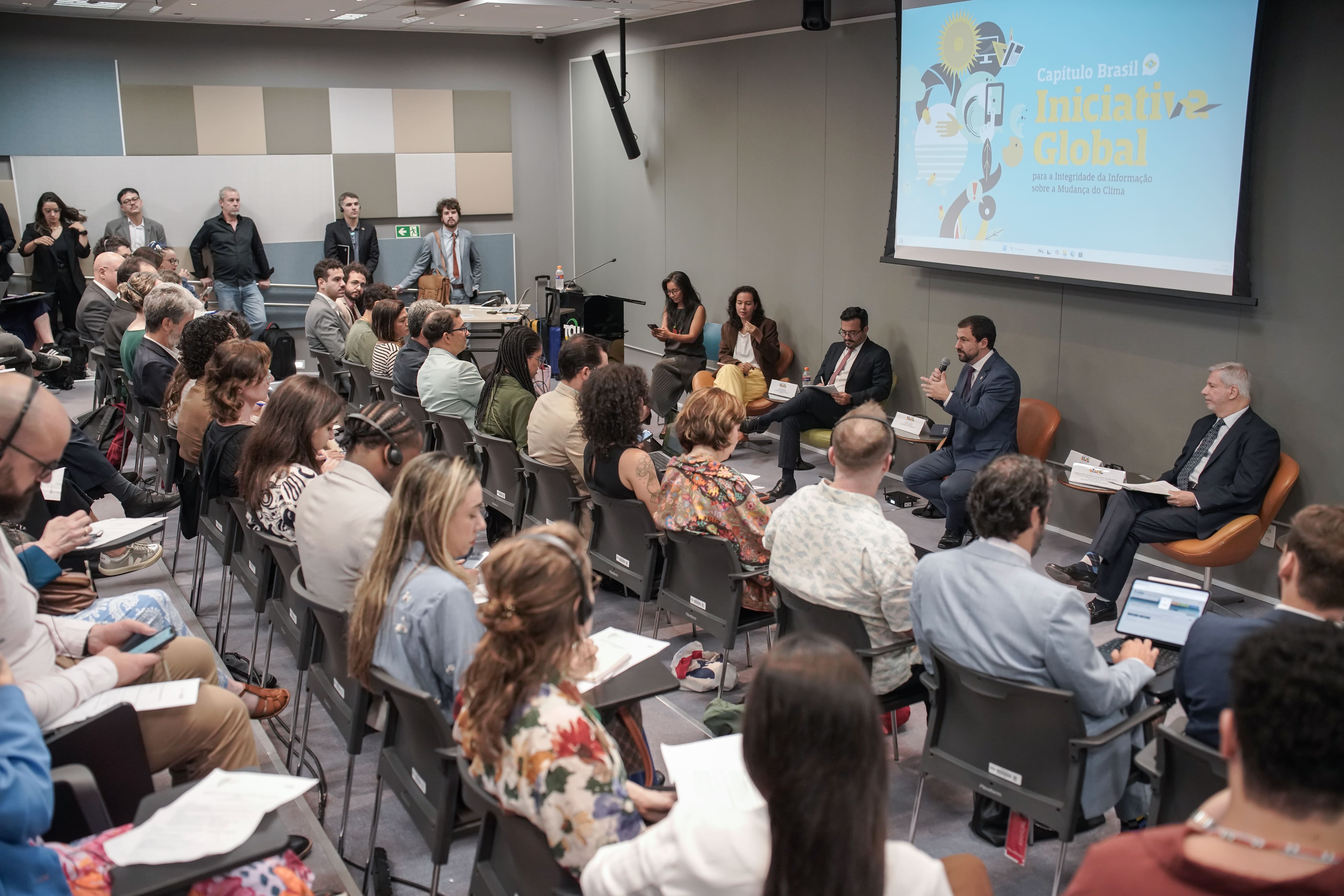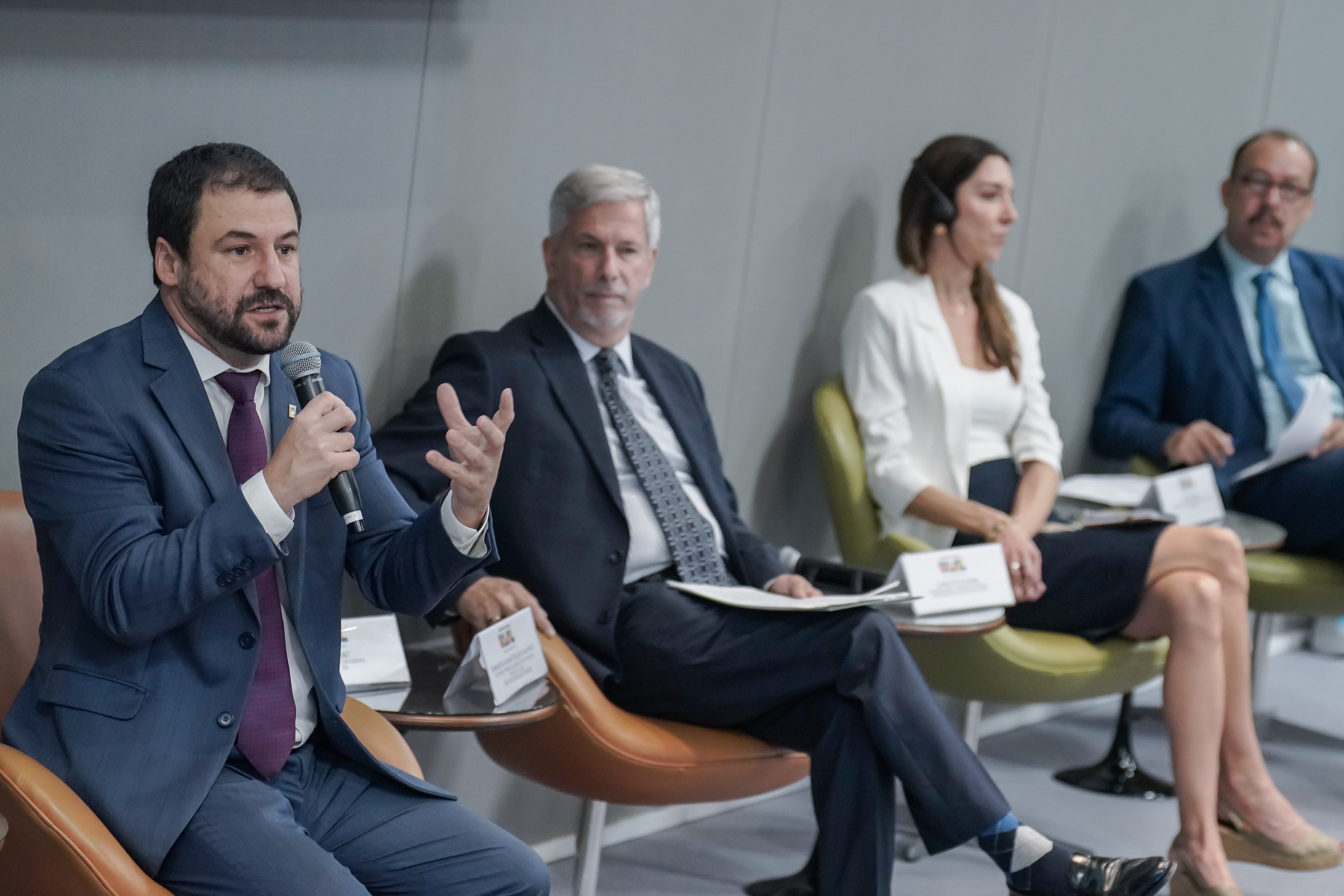Brasil articulates network of partner organizations for information integrity on climate change
On March 26 in Brasília, Brasil launched a network of partner organizations for the integrity of information on climate change. This Brazilian initiative is part of the Global Initiative for Information Integrity on Climate Change, launched in 2024 as part of the country's contributions to the agenda

Por Inez Mustafa/ inez.mustafa@pesidencia.gov.br
On March 26, in Brasilia, the Brazilian government launched a first initial effort to create a network of partners to strengthen actions against climate disinformation. The initiative is part of the Brazilian chapter of the Global Initiative for Information Integrity on Climate Change, and brought together civil society organizations from all over the country, academics and international experts, with the expectation of coordinated actions to strengthen this strategy in the context of COP30 (United Nations Conference on Climate Change).
The networking is a joint effort between the Secretariat of Social Communication of the Presidency of the Republic (SECOM/PR), the Ministry of Foreign Affairs (Ministério das Relações Exteriores/MRE) and UNESCO (United Nations Educational, Scientific and Cultural Organization). João Brant, Secretary of Digital Policy at SECOM/PR, stressed the importance of linking the discussion on digital platforms, democracy, disinformation and climate change, and advocated that COP30 address the issue in the context of the Global Initiative for Information Integrity on Climate Change, launched in 2024.

"We will not discuss disinformation outside our operating environment. Our ability to influence, to give concrete answers in the protection of individuals, in the protection of individual and collective rights, in the legitimacy of public actions and public policies in Brasil," he said.
According to Brazilian Ambassador Laudemar Neto, the Brazilian chapter is a response to the Global Digital Compact's commitment to encourage United Nations bodies, along with governments and other civil society actors, to assess the impact of disinformation on the design of the Sustainable Development Goals (SDGs).
Charlotte Sadan, Senior Adviser on Information Integrity at the United Nations, said Brasil's efforts are important to rebalance the dominance of English in research on climate disinformation. "We need to understand all of our information environments, especially climate information from the Global South, in order to improve the channeling of strategic actions, communication responses and advocacy," Sadan said.
When climate disinformation is spread, it undermines democratic support for the actions needed to address climate change, says Adauto Santos, UNESCO's Coordinator for Communication and Information. "To address these challenges, UNESCO has launched the Global Roadmap for Information as a Public Good in the Face of the Environmental Crisis. This roadmap gathers ideas from across UNESCO and aligns our initiatives leading up to COP30 in Brasil," said the coordinator.
Information for those who are affected by climate change
When we talk about climate disinformation, we need to think about the people affected by climate vulnerability, added Daniel Viegas of the Ministry of Environment and Climate Change (Ministério do Meio Ambiente e Mudança Climática/MMA). For him, scientific research must be more widespread than disinformation, reaching "the peripheries, people in farming areas, people in slums".
He argues that through strategic communication it is possible, for example, to make the scientific evidence consolidated by the IPCC (Intergovernmental Panel on Climate Change) accessible to people, for example, so that the debate focuses on how to tackle climate change rather than discussing "whether it exists or not". "We need to get away from the denial hypothesis and discuss what we are going to do to solve climate change, its effects and discuss the causes of climate change," he said.
Rather than discussing "whether it exists or not". "We need to get away from the denial hypothesis and discuss what we are going to do to solve climate change, its effects and discuss the causes of climate change," said Daniel Viegas.
In times of climate disasters, the promotion of misinformation directly affects the physical integrity of the people involved, warned João Guilherme dos Santos of the Democracy in Check Institute. The expert highlighted the floods that occurred in Rio Grande do Sul in 2024 as a real-life example. It hindered the arrival of food for the people who were caught in the floods," he recalled, adding that the reproduction of information based on scientific data "saves lives at different times".
Global cooperation to tackle climate change
The Global Initiative for Information Integrity on Climate Change was launched by Brasil during the 2024 G20 Summit in Rio de Janeiro, marking the first time the issue was included in the Forum's Leaders' Declaration. In addition to SECOM/PR, the MMA, the MRE and UNESCO, Chile, Denmark, France, Morocco, the United Kingdom and Sweden have also joined the initiative.
English version: Trad. Bárbara Menezes

